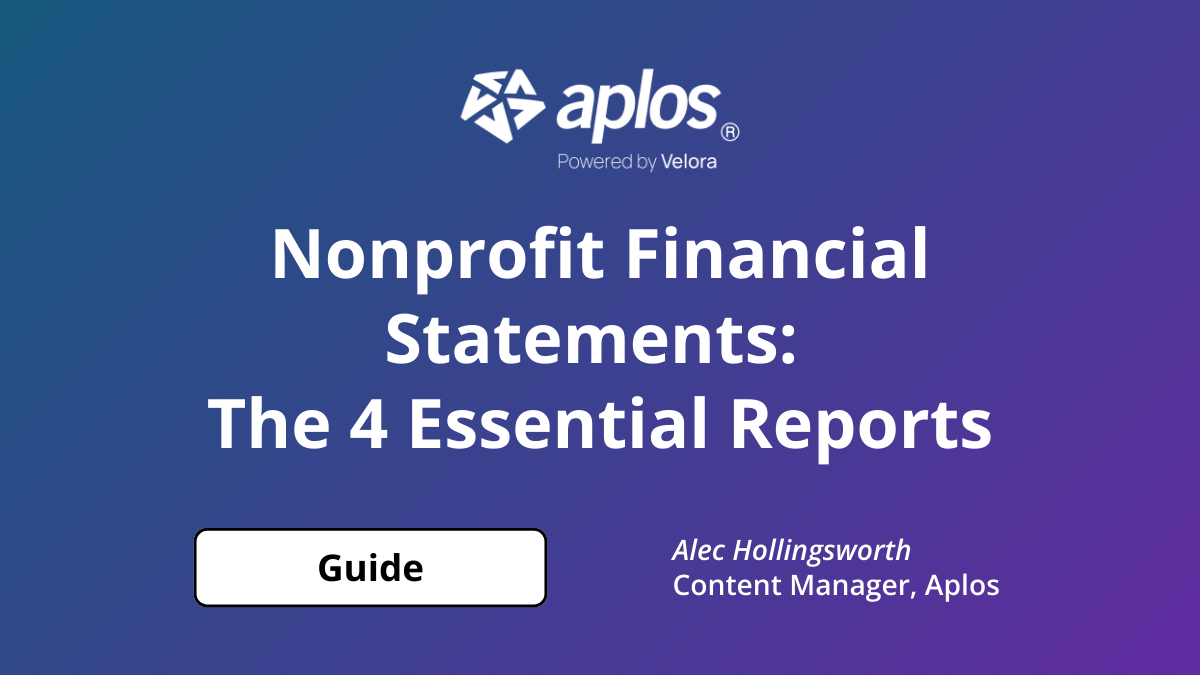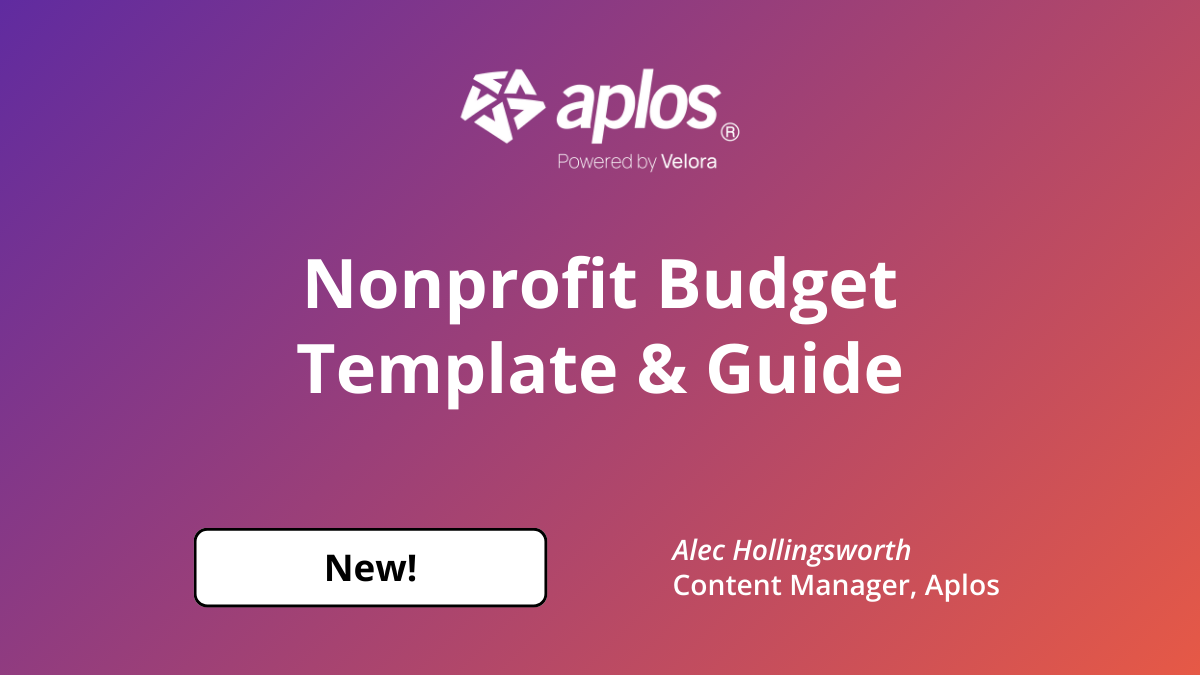
The Definitive Glossary of Nonprofit Terms

Do you know the terminology for nonprofits? This nonprofit glossary contains important terms that will help you navigate your responsibilities.
501(c)(3)
The 501(c)(3) is a section of the Internal Revenue Code that designates an organization as charitable and tax-exempt. Organizations qualifying under this section include religious, educational, charitable, amateur athletic, scientific or literary groups, those testing for public safety, or those involved in the prevention of cruelty to children or animals. Most organizations seeking foundation or corporate contributions secure a Section 501(c)(3) classification from the Internal Revenue Service (IRS).
Acknowledgment Letter
An acknowledgment letter is sent by a donee, or on behalf of a donee, to the donor, expressing appreciation for a gift and identifying the use of the gift. It may be a form letter, but it is usually personalized.
Advisory Board
An advisory board is made up of a group of influential and prominent individuals whose association with a development program is calculated to lend luster and implied endorsement of the program’s goals and objectives.
Annual Giving
This type of giving refers to annually repeating gift programs, or to seeking funds on an annual or recurring basis from the same constituency. Income is generally used for operating budget support.
Annual Report (Contributions)
Foundations or corporations voluntarily publish an annual report to describe their grant activities. It may be a simple, typed document listing the year’s grants or an elaborately detailed publication. A growing number of foundations and corporations use an annual report as an effective means of informing the community about their contribution activities, policies, and guidelines. The annual contributions report is not to be confused with a corporation’s annual report to the stockholders.
Annual Report (To Stockholders)
This is a yearly report of financial and organizational conditions prepared by the management of an organization.
Anonymous Gift
With an anonymous gift, any announcements can only include the amount given. The name of the donor is withheld at their request.
Appeal
Your fundraising appeal is your organization’s request for donations to support your mission. It can take the form of an email, print letter, or social media post. It can even happen in person during a live or broadcasted event. An appeal explains your cause, shows its impact, and creates a sense of urgency for your donors.
Benefactor
A benefactor is someone who makes a major gift to an institution or agency. It is also an arbitrary classification of contributors whose gifts are above a certain level, which is calculated to single them out as a group and stimulate similar giving by others.
Board Of Directors
A board of directors is comprised of individuals, often selected by other directors or members, in accordance with law (usually reflected in bylaws), to establish policy and oversee the management of an organization or institution.
Campaign
A campaign is an organized effort to raise funds for a nonprofit organization.
Capital Campaign
A capital campaign is a carefully organized, highly structured fundraising program. Volunteers, staff, and sometimes consultants help raise funds for specific needs that are meant to be met in a specific time frame, with a specific dollar goal. A capital campaign allows donors to pledge gifts to be paid over a period of time, often years.
Cash Gift
A cash gift is a simple transfer of cash, check, or currency (other than a special collection) to a gift-supported organization or institution.
Charitable Contribution
A charitable contribution is a donation of something of value to a gift-supported charitable organization. It is usually tax-deductible.
Charitable Deduction
A charitable deduction is the value of money or property transferred to a 501(c)(3) organization, which is deductible for income, gift, and estate tax purposes. In most cases, the term charitable deduction refers to the amount of a gift that can be deducted from the portion of a donor’s income that is subject to federal income tax. A donor’s charitable deduction should not be confused or equated with the value of a gift. That is, gifts for the purpose of life income agreements are not federally deductible at their full value.
Constituency
A constituency is comprised of all the people who, in some form, have been involved with the institution seeking support. It consists of members, contributors, participants (past or present), clients, and relatives of clients.
Corporate Foundation
A corporate foundation is the philanthropic arm created by a corporation to deal with requests for contributions from various agencies, including local, region, or national.
Corporate Giving Program
A corporate giving program is a grantmaking program established and controlled by a for-profit corporation or company. It does not necessarily include a separate endowment, and the annual grant total may be directly related to the previous year’s profits. Giving directly from corporate profits is not subject to the same reporting restrictions as giving from private foundations. Some companies may make charitable contributions from corporate profits, operating budgets, or company-sponsored foundations.
Crowdfunding
Crowdfunding is a fundraising method where an individual or organization asks many people for small donations to reach a larger goal. In an online crowdfunding campaign, the fundraiser creates a personalized page on a site that allows them to collect donations, share the page via social media channels and email, and update people on their progress.
Cultivation
Cultivation is the process of promoting or encouraging interest and/or involvement on the part of a potential donor or volunteer leader. It is also a process to inform and educate people about an institution and the reasons why it merits support.
Designated Gift
A designated gift is a restricted or commemorative gift made for a specific purpose and designated for a specific use.
Direct Mail
Direct mail is a way of soliciting gifts or volunteer services, and distributing information through a mass mailing.
Donor
A donor is an individual, organization, or institution that makes a gift.
Donor Acquisition
Donor acquisition is the process of identifying and obtaining donors.
Donor-Advised Fund (DAF)
A donor-advised fund, or DAF, is an account administered by a 501(c)(3) organization that acts as a fiscal sponsor to manage donations on behalf of organizations, families, or individuals. This fund allows people to make a donation in return for an immediate tax benefit. The fiscal sponsor has legal control over the fund, but contributors retain the right to recommend (or advise) which groups or projects the assets should benefit.
Donor Database
Your donor database is the list of people who’ve given to your organization, either recently or at some point in the past. It might also include people who are strong potential donors, such as volunteers or anyone who has attended one of your events. A donor database will include things like contact information, when and how much a person gave, whether they’re recurring donors, and how often they volunteer with your nonprofit.
Donor-Designated Fund
A donor-designated fund is held by a community foundation, where the donor has specified that the fund’s income or assets be used for the benefit of one or more specific public charities. These funds are sometimes established by a transfer of assets by a public charity to a fund designated for its own benefit, in which case they may be known as grantee endowments.
Donor List
A donor list is a list of contributors prepared for a particular purpose or in conjunction with building lists for the future.
Donor Recognition
Donor recognition is the policy and practice of recognizing gifts. This is done first through immediate acknowledgment by card or letter, and subsequently through personalized notes, personal expressions of appreciation directly to donors, published lists of contributors, etc.
Donor Relations
Donor relations refers to a planned program of maintaining donor interest. This may be done through acknowledgments, information, personal involvement, etc.
Donor Retention
Donor retention is the percentage of people who repeatedly support your organization. Retention rates are typically calculated by year.
Endowment
An endowment is a donated fund. A board uses investment income from the fund for operating costs or other purposes, while usually leaving the principal amount alone. Such endowments include gifts for which donors specify their use. They may also include gifts that are given for no specific purpose, which a board treats as an endowment.
Face-To-Face Solicitation
Face-to-face solicitation involves soliciting a prospective donor in person.
Family Foundation
A family foundation derives its funds from members of a single family. Generally, family members serve as officers or board members of the foundation and play an influential role in grantmaking decisions.
Fundraiser
A fundraiser is someone who makes a living working as a member of an organization’s or institution’s development department, as an independent fundraising consultant, or as a member of a fundraising counseling firm. A volunteer who raises funds for a cause is also referred to as a fundraiser. In addition, a fundraising event has come to be known as a fundraiser.
Fundraising Plan
A fundraising plan encompasses all of the elements comprised by an organization’s procedure for attaining a campaign goal. The plan may include a fundraising program, objectives, case, leadership requirements, timetable, personnel requirements, and budget, as well as the overall strategy or grand design for successful implementation of a campaign.
Gift
A gift is a voluntary, irrevocable transfer of something of value. If the individual making the gift entertains any ideas of reclaiming it, at the time of transfer or in the future, the transfer is not a gift.
Giving Tuesday
Giving Tuesday is a global day of giving that takes place on the first Tuesday after Thanksgiving as a way of countering the consumer-oriented holiday shopping season. Often hashtagged #GivingTuesday on social media, the event began in 2012 by the 92nd Street Y in New York City in partnership with the United Nations Foundation. Today, it’s a global fundraising event that has engaged more than 10,000 nonprofits.
Grant
A grant is generally an allocation from a foundation, corporation, or government agency.
Grassroots Fundraising
Grassroots fundraising refers to raising modest amounts of money from individuals or groups from the local community on a broad basis. It is usually done within a specific constituency, among people who live in the neighborhood served, or people who are clients. Common grassroots fundraising activities include membership drives, raffles, bake sales, auctions, benefits, and dances.
In-Kind Gift
An in-kind gift is a contribution of equipment or other property that the donor may place a monetary value on and deduct for income tax purposes.
Legacy
A legacy is a disposition of personal property in a will. A demonstrative legacy is a legacy payable primarily out of a specific fund. A specific legacy is a legacy of a particular article or specified part of the estate.
Letter Of Inquiry
A letter of inquiry is sent by an organization to a foundation or corporation, seeking funding for a project and asking the foundation or corporation to consider funding the project or receiving a full proposal.
Letter Of Intent
A letter of intent is a pledge form used by potential donors who view the pledge as a contract. They use it to declare their intent to donate to an organization.
LYBUNT
Also known as a lapsed donor, LYBUNT is an acronym for donors who gave “Last Year But Unfortunately Not This” (year). They can be great prospects to reach out to during your year-end appeals.
Major Gift
A major gift is a gift of a significant amount. The size of the gift may vary according to organization’s needs and goals, and it may periodically repeat. The term may also refer to a program designation.
Matching Gift
A matching gift is made on the condition that it be matched within a certain period, either on a one-to-one basis or in accordance with some other formula. It also refers to a gift by a corporation that matches a gift by one of its employees.
Mission
A mission is a philosophical or value statement that seeks to respond to why the organization exists, or its basic reason for being. A mission statement is not defined in expressions of goals or objectives.
Monthly Giving
A monthly giving program allows supporters to make an automatic donation of a specific amount every month, typically as a recurring credit card charge. Donors who might not be able to give a large one-time gift are often willing to sign up for monthly giving, ultimately donating more over time than they would have otherwise.
Nonprofit Organization
Nonprofit organizations consist of members or volunteers, classified by the Internal Revenue Service as providing a public benefit, without the purpose of profit for members of the corporation.
Outright Gift
An outright gift is the simple transfer of gift property to the donee without any conditions or terms of the trust.
Peer-To-Peer Fundraising
Also known as social fundraising, peer-to-peer is a fundraising method where supporters raise donations from their social networks on behalf of an organization. The nonprofit usually supplies the tools to help their fundraisers succeed. These may include social media assets, a personalized fundraising page, and sample messages.
Philanthropic Foundation
A philanthropic foundation is a corporation or trust that has been created through contributed funds, whether by an individual, family, corporation, or community. The foundation supports nonprofits, and such organizations may apply for grants in support of their programs and projects.
Philanthropist
Broadly speaking, a philanthropist is anyone who makes a gift. However, the term is usually used to describe a wealthy individual known for their exceptional generosity in support of charitable causes.
Philanthropy
As used at the Center on Philanthropy, the term refers to a voluntary action for the public good, including voluntary service, voluntary association, and voluntary giving.
Planned Gift
A planned gift is provided legally during the donor’s lifetime, but the principal benefits do not accrue to the institution until some future time, usually at the death of the donor or their income beneficiary.
Planned Giving
Planned giving is the application of sound personal, financial, and estate planning concepts to the individual donor’s plans for lifetime and testamentary giving.
Pledge
A pledge is a signed and dated commitment to make a gift over a specified period of time, generally two or more years. It is payable according to terms set by the donor, with scheduled monthly, quarterly, semi-annual, or annual payments.
Proposal
A proposal is a written request or application for a gift or grant that includes the need for the project or program, who will carry it out, and how much it will cost.
Prospect Mailing
Prospect mailing refers to sending mail to prospects to acquire new members or donors.
Prospective Donor
A prospective donor is any logical source of support, whether they are an individual, corporation, organization, government at all levels, or foundation. The emphasis is on the logic of support.
Recognition
Recognition refers to formal or informal acknowledgment of a gift or contributed services It may be in the form of an event, communication, or a significant item honoring a gift or a service.
Recurring Giving
Recurring giving is an important option on a donation page that allows donors to give an amount in regular increments, typically monthly. Donors will often choose recurring gifts when presented with the option. Recurring giving is an easy and effective way to boost overall fundraising over the course of a year, so this option should be prominently displayed on a donation page. People who strongly support a cause but might not be able to make a large donation all at once like recurring giving because it allows them to give more over time than they could otherwise. It also helps an organization budget more effectively since it can predict how much money will come in going forward.
Renewal Mailing
Renewal mailing refers to mailing donors or members to request renewed support.
Restricted Fund
A restricted fund refers to a fund in which the principal and earnings are bound by donor guidelines as they relate to investment, expenditure, or both.
Restricted Gift
A restricted gift is made for a specified purpose, clearly stated by the donor.
Seed Money
Seed money refers to a substantial gift, generally by a foundation or an affluent individual, to launch a program or project.
Segmentation
Segmentation means breaking down your overall audience or email list into smaller, targeted groups that your organization can market to directly. Some ways to segment your audience are by giving history (frequency and how long they’ve been a donor), lapsed donors, gift size, program interest, or email inactivity.
Special Event
A special event is a fundraising function designed to attract and involve large numbers of people for the purpose of raising money or cultivating donors.
Special Gifts
Special gifts fall within the fourth tier of giving to a campaign. They are gifts that require special attention by the recipient organization to attract donor participation.
Stewardship
Stewardship is the guiding principle in philanthropic fundraising. It is defined as the philosophy and means by which an institution exercises ethical accountability in the use of contributed resources. It also refers to the philosophy and means by which a donor exercises responsibility in the voluntary use of resources.
SYBUNT
SYBUNT is an acronym for donors who gave “Some Year But Unfortunately Not This” (year). Depending on how long it’s been since they gave and how often, these folks can be good prospects to reach out to during your year-end appeals.
Tax-Deductible Amount
The tax-deductible amount is the amount of a donation a donor can claim as a deduction on their income tax return. Charitable donations must be paid in cash or as other property before the close of the tax year to be deductible. In general, donations to charities can be deducted up to 50% of adjusted gross income, though some gifts to private foundations, veterans’ groups, etc., have lower limits.
Trust
Trust refers to a fiduciary relationship, with respect to property, subjecting the person who holds the title of the property to equitable duties to deal with the property for the benefit of another person. For example, person A gives property in trust, with person A as trustee, to pay income to person B for life, and then to give property over to person C, free and clear.
Trust Funds
Trust funds refer to money, securities, or property held in trust by an agent of wealth (bank, estate manager, or attorney), or managed by an institution under a trust agreement to produce income for the beneficiary.
Trustee
A trustee is a person or agent of a trust, such as a bank, holding legal title to property in order to administer it for a beneficiary. The term may also refer to a member of a governing board or to the “directors” in a corporate trust.
Unrestricted Gift
An unrestricted gift refers to a gift to an institution or agency to be used for whatever purposes officers or trustees choose.
If you found this glossary of nonprofit terms helpful, we encourage you to try our Donor Management product today. We built it from the ground up with an emphasis on building donor relationships.
Try it now for 15 days and let us know what you think.

Our comprehensive closeout services start at $399 per month that needs to be reconciled. Sign up before Jan 1st and pay just $199.50 per month!
Copyright © 2025 Aplos Software, LLC. All rights reserved.
Aplos partners with Stripe Payments Company for money transmission services and account services with funds held at Fifth Third Bank N.A., Member FDIC.
Copyright © 2024 Aplos Software, LLC. All rights reserved.
Aplos partners with Stripe Payments Company for money transmission services and account services with funds held at Fifth Third Bank N.A., Member FDIC.



.png)



